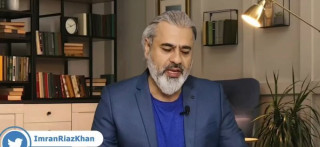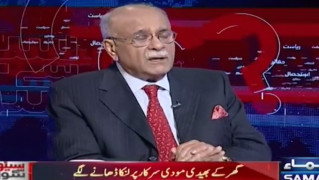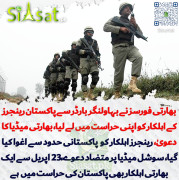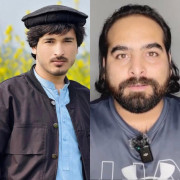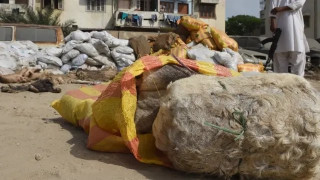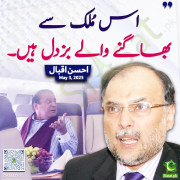Source:
http://www.islamonline.net/servlet/Satellite?pagename=IslamOnline-English-Ask_Scholar/FatwaE/FatwaE&cid=1119503545472
The Last Moments of the Prophets (PBUH) Life:
It is to be noted that the last moments of the Prophets life are remarkable. In fact, no one can imagine those moments without shedding tears, being overwhelmed with grief and sorrow for this great loss. It is really a remarkable event in the history. To have a detailed description of those moments, we would like to cite for you the following:
Madina was totally engulfed in confusion and anxiety. The Companions of the Prophet, peace and blessings be upon him, had gathered round his house with tearful eyes and grieved hearts. The reports which were pouring out from the house showed that his condition was extremely serious, and there was very little hope of his recovery. This showed that only a few moments of his precious life were left.
A number of the Companions of the Prophet were desirous of seeing him from near, but his serious condition would not permit that anyone except the members of the family should visit the room in which he was lying.
The honoured daughter and the only souvenir of the Prophet viz Lady Fatimah was sitting beside her father's bed. She was looking at his sacred face and could see that the perspiration of death was flowing down his face and forehead. With a heavy heart, tearful eyes, and choked throat, she was reciting the following verse which Abu Talib had recited in praise of the Prophet :
"The luminous face in whose honour rains are sought from the clouds. The person who is the asylum for the orphans and the guardian of the widows".
At this moment the Prophet, peace and blessings be upon him, opened his eyes and said to his daughter in a low voice: "This is a verse which Abu Talib recited about me. It will, however, be better if, instead of the same, you recite this verse of the
Holy Quran: Muhammad is but a messenger. The messengers have already passed away before him. Will it be that, when he dies or is slain, you will turn back on your heels? He who turns back does no hurt to Allah, and Allah will reward the thankful. (Al-`Imran:144)
The Prophet (PBUH) Speaks to His Daughter:
Experience shows that on account of excessive preoccupations the sentiments of big personalities with regard to their children become dim, because absorption in world affairs keep them so busy that their sentiments for their children remain suppressed. However, great spiritual personalities are an exception to this rule. Notwithstanding their great targets and universal ideals and ever-increasing activities they possess such extensive and great souls that inclination towards one part does not keep them from the other parts.
The Prophet's (PBUH) love for his only child was one of the most sublime manifestations of human sentiments, so much so that he never proceeded on a journey without saying farewell to his daughter and when he returned from a journey he first of all went to see her. He accorded her great respect as compared with his wives and used to tell his Companions: "Fatimah is a part of my body. Her pleasure is my pleasure and her anger is my anger."
Throughout the period of the Prophet's illness Fatimah remained by the side of his bed and was not away from him even for a moment. Suddenly the Prophet, peace and blessings be upon him, made a sign to her asking her to speak to him. The Prophet's daughter bent a little, brought her head near him and conversed with him in low tones. The persons who were present round the Prophet's bed did not become aware of what they talked about. When the Prophet ceased talking, Lady Fatimah wept bitterly. However, soon after this the Prophet made a sign to her again and spoke to her in low tones. This time she raised her head in a happy mood and with smiling lips. Those present were surprised to observe these two antithetical conditions at one and the same time and they requested Fatimah to inform them of her conversation with the Prophet. She replied: "I am not going to divulge the secret of the Prophet of Allah ".
After the passing away of the Prophet, peace and blessings be upon him, Fatimah informed them of the factual position on account of the insistence of A'isha and said: "In the first instance my father informed me about his death and stated that he was not likely to recover from his illness. Hence, I began weeping. However, when he talked to me for the second time he told me that I would be the first person from amongst his Ahl al-Bayt who would join him. This made me happy and I understood that I would be joining my dear father very soon''.
Excerpted, with slight modifications, from
http://www.al-islam.org" onclick="window.open(this.href);return false;" onclick="window.open(this.href);return false;
Shedding more light on this, the following is what the erudite Muslim writer and author, Sheikh Safiur-Rahman Al-Mubarakfuri wrote in his book The Sealed Nectar
Anas ibn Malik, may Allah be pleased with him, narrates: "While the Muslims were performing the Dawn prayer (Fajr) on Monday led by Abu Bakr, they were surprised to see the Prophet, peace and blessings be upon him, raising the curtain of `Aishas room. He looked at them while they were praying and smiled cheerfully. Seeing him, Abu Bakr withdrew to join the lines and give way to him to lead the prayer, for he thought that the Prophet, peace and blessings be upon him, wanted to pray with them. The Muslims, who were praying, were so delighted that they were almost too enraptured at their prayers. The Prophet, peace and blessings be upon him, made them a gesture to continue their prayer, went into the room and drew down the curtain."
On his last day, the Prophet, peace and blessings be upon him, asked that his grandsons, Al-Hasan and Al-Husain be brought to him. He kissed them and recommended that they be looked after. He asked to see his wives. They were brought to him. He told them to stick to the remembrance of Allah. Pain grew so much severer. He turned to `Aisha and said: I feel as if death is approaching. He ordered the people to perform the prayers and be good to slaves. He repeated it several times.
The Prophet, peace and blessings be upon him, breathes his Last:
When the pangs of death started, `Aisha leant him against her. She used to say: It was a great Divine favor on me that the Prophet, peace and blessings be upon him, died in my room, while I am still alive. He died between my chest and neck while he was leaning against me. Allah mixed his saliva with mine at his death. For Abdur-Rahman ibn Abu Bakr came in with a Siwak (tooth stick) in his hand, while the Prophets head was in my lap. I noticed that he was looking at the Siwak. So I asked him: Would you like me to have it? He nodded in the affirmative. I took it and gave it to him. As it was too hard for him, I asked him again: Shall I soften it for you? Again, he nodded in the affirmative. So I softened it with my saliva and he passed it (on his teeth). There was a water container available at his hand with some water in. He put his hand in it and wiped his face with it and said: There is no god but Allah. Verily, death is full of agonies. (Reported by Al-Bukhari)
As soon as he finished brushing his teeth with the Siwak, he raised his hand or his finger up, looking upwards to the ceiling he mumbled some words. So `Aishah listened attentively. A voice, as if coming from Paradise, could be heard reciting: With those on whom You have bestowed Your Grace, with the Prophets and the Truthful Ones, the martyrs and the good doers. O Allah! forgive me and have mercy on me and join me to the Companionship on high. To Allah is our return and to Him we supplicate for help." This event took place at high morning time on Monday, the twelfth of Rabi` Al-Awwal, in the eleventh year after the Hijrah
Burial and Funeral Service:
On Tuesday, the Prophets body was washed with his clothes on. Al-Abbas, Ali, Al-Fadl and Qathm the two sons of Al-Abbas, as well as Shaqran the Messengers freed slave, Osama bin Zayd and Aws bin Khauli carried out the washing. Al-Abbas, Al-Fadl and Qathm turned his body round, whereas Osamah and Shaqran poured out water. Ali washed him and Aws leant him against his chest.
As recorded in Sahih Al-Bukhari and Muslim, they shrouded him in three white cotton clothes which had neither a head cloth nor a casing and inserted him in. A sort of disagreement arose with regard to a burial place. Abu Bakr said: I heard the Messenger, peace and blessings be upon him, saying: A dead Prophet is buried where he dies. So Abu Talhah lifted the bed on which he died, dug underneath to make the tomb.
People entered the room ten by ten. They performed the Prophets funeral prayer. The first to pray for him were people of his clan. Then the Emigrants, then the Helpers. Women prayed for him after men. The young were the last to pray. This process continued from Tuesday to Wednesday night (i.e. the night which precedes Wednesday morning). `Aishah said: We did not know that the Prophet, peace and blessings be upon him, was being buried till we heard the sound of tools digging the ground at the depth of Wednesday night.
In his renowned book The Life of Muhammad, Dr. Muhamad Husain Heikal, wrote:
"Thus, Muhammad left this world just as he had entered, without material gains. His only inheritance left to mankind was the religion of truth and goodness. He had paved the way and laid the foundation for the great civilization of Islam which had covered the four corners of the globe. It is a civilization in which monotheism was the cornerstone; and an order in which the word of Allah and His commandments are always uppermost, while those of unfaith are nethermost. It is a civilization that has purged absolutely clean of all paganism and of all idolatrous forms and expressions, a civilization in which men are called upon to cooperate with one another for the good and moral felicity of all human beings, not for the benefit of any group or people.
One of the last sermons which the Prophet delivered to the people during his illness contained the following words: O People! If I have lashed the back of anyone, let him come forward and lash my back in return. If I have insulted anyone, let him come forth and revenge for himself. If I have dispossessed anyone of any wealth, let him come forth and take back his wealth from me.
The Prophet left this world an inheritance of a great spiritual legacy whose light continues to illumine the world and will continue to illumine the world until Allah completely makes this religion victorious. May Allah's peace and blessing be upon Muhammad!"

